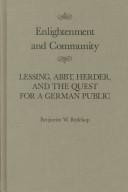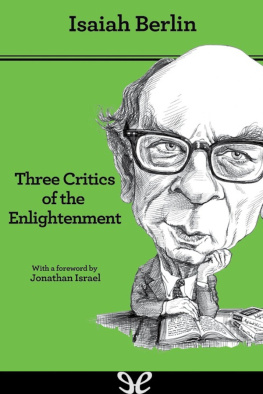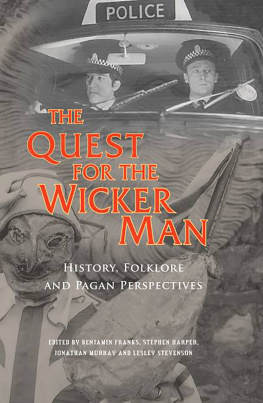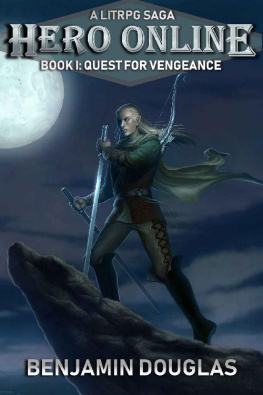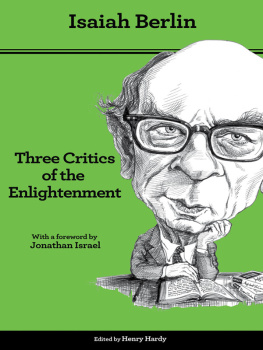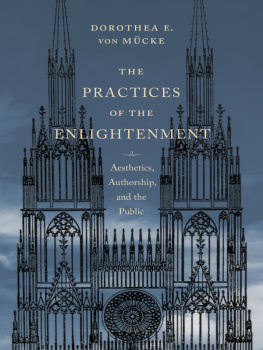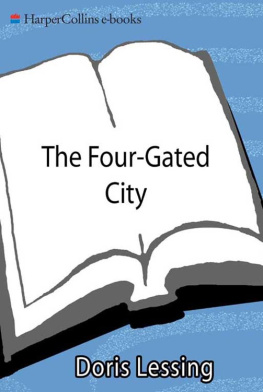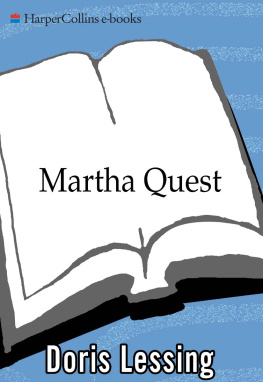Benjamin W. Redekop - Enlightenment and Community: Lessing, Abbt, Herder, and the Quest for a German Public (Mcgill-Queens Studies in the History of Ideas)
Here you can read online Benjamin W. Redekop - Enlightenment and Community: Lessing, Abbt, Herder, and the Quest for a German Public (Mcgill-Queens Studies in the History of Ideas) full text of the book (entire story) in english for free. Download pdf and epub, get meaning, cover and reviews about this ebook. year: 1999, publisher: McGill-Queens University Press, genre: Politics. Description of the work, (preface) as well as reviews are available. Best literature library LitArk.com created for fans of good reading and offers a wide selection of genres:
Romance novel
Science fiction
Adventure
Detective
Science
History
Home and family
Prose
Art
Politics
Computer
Non-fiction
Religion
Business
Children
Humor
Choose a favorite category and find really read worthwhile books. Enjoy immersion in the world of imagination, feel the emotions of the characters or learn something new for yourself, make an fascinating discovery.
- Book:Enlightenment and Community: Lessing, Abbt, Herder, and the Quest for a German Public (Mcgill-Queens Studies in the History of Ideas)
- Author:
- Publisher:McGill-Queens University Press
- Genre:
- Year:1999
- Rating:3 / 5
- Favourites:Add to favourites
- Your mark:
Enlightenment and Community: Lessing, Abbt, Herder, and the Quest for a German Public (Mcgill-Queens Studies in the History of Ideas): summary, description and annotation
We offer to read an annotation, description, summary or preface (depends on what the author of the book "Enlightenment and Community: Lessing, Abbt, Herder, and the Quest for a German Public (Mcgill-Queens Studies in the History of Ideas)" wrote himself). If you haven't found the necessary information about the book — write in the comments, we will try to find it.
Benjamin W. Redekop: author's other books
Who wrote Enlightenment and Community: Lessing, Abbt, Herder, and the Quest for a German Public (Mcgill-Queens Studies in the History of Ideas)? Find out the surname, the name of the author of the book and a list of all author's works by series.

